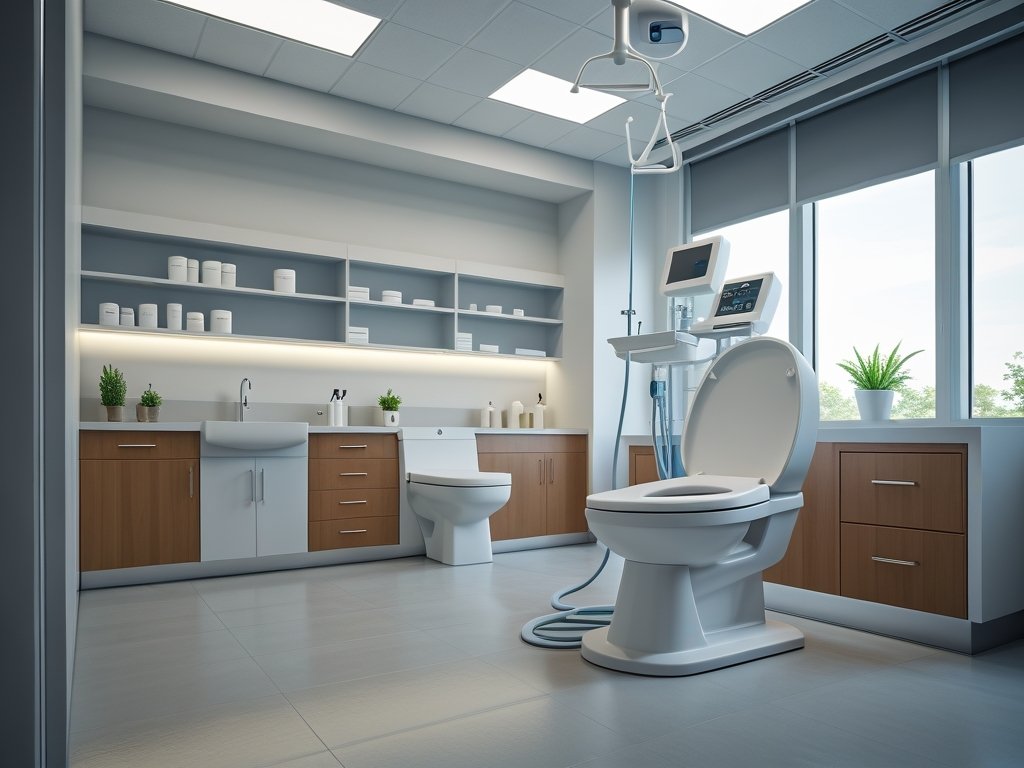Designing Morning Routines With Urinary Ease
Many people experience varying degrees of bladder urgency or frequency, impacting their sleep and overall morning well-being. Often overlooked in self-care routines is the intentional consideration of urinary ease – how smoothly and comfortably we transition from sleep to wakefulness and manage our bladder needs during that crucial period. A thoughtful approach to morning routines can significantly reduce anxiety surrounding bathroom trips, promote a sense of calm control, and ultimately set a more positive tone for the entire day. This isn’t about eliminating natural bodily functions; it’s about harmonizing them with daily rhythms in a way that minimizes stress and maximizes comfort. It’s also important to acknowledge that individual experiences are diverse and what works for one person may not work for another, making personalization key.
The goal is to proactively address potential challenges rather than reactively managing discomfort. This includes factors like hydration timing, pre-sleep habits, and the mindful structuring of morning activities. Ignoring these aspects can lead to a cycle of anxiety – worrying about needing to go, then becoming more anxious because you’re thinking about it, which can ironically exacerbate bladder symptoms. By incorporating small, deliberate changes into our routines, we can regain agency over our mornings and approach the day with greater confidence and ease. This article will explore practical strategies for building morning routines that prioritize urinary comfort and well-being, acknowledging the nuances of individual needs and preferences. Consider also exploring how to build urinary awareness into your daily rituals.
Hydration & Timing: The Foundation of Comfort
Hydration is essential for overall health, but when we hydrate can significantly impact bladder control and urgency. Many people instinctively reach for a large glass of water immediately upon waking, believing it to be a healthy habit. While beneficial in many ways, this can overwhelm the bladder if it’s already full from overnight accumulation or if your body hasn’t fully “woken up” its regulatory mechanisms. Instead, consider spreading out fluid intake throughout the day and being mindful of timing around bedtime.
- Avoid large fluid volumes immediately before bed. A small sip is fine, but a full glass can increase nighttime trips to the bathroom and disrupt sleep.
- Gradually rehydrate in the morning. Start with a smaller amount of water upon waking – perhaps 4-6 ounces – then continue sipping throughout your routine.
- Be mindful of diuretic beverages like coffee, tea, and alcohol, especially first thing. These can stimulate bladder activity and increase urgency. If you enjoy these drinks, consider having them later in the morning after your initial bathroom visit and a period of settled hydration.
Strategic timing isn’t just about avoiding discomfort; it’s also about supporting the body’s natural rhythms. Overnight, our bodies conserve fluids to prevent dehydration during sleep. Upon waking, we need to gently reintroduce hydration without shocking the system. This approach minimizes the feeling of immediate urgency and allows for a more comfortable transition into wakefulness. It’s about working with your body, not against it. To learn more about optimal hydration, review herbal drinks that support urinary balance.
Creating a Bathroom-First Routine
One simple yet powerful strategy is to make the bathroom the very first stop upon waking – even before stretching or thinking about the day ahead. This preemptive emptying of the bladder can provide immediate relief and reduce anxiety throughout the morning routine. It doesn’t eliminate the need for further trips, but it establishes a baseline of comfort that minimizes potential disruptions.
- As soon as you wake up, resist the urge to check your phone or engage in mental planning.
- Get out of bed and head directly to the bathroom.
- Take your time – don’t rush the process. Allow yourself to fully empty your bladder.
- Afterward, practice a few deep breaths to promote relaxation and a sense of calm.
This “bathroom-first” approach is particularly helpful for individuals experiencing frequent urination or urgency, as it reduces the likelihood of unexpected urges during other morning activities. It also creates a mental space where you are proactively addressing your bladder needs rather than reactively responding to them. Proactive emptying can significantly reduce anxiety. You might find simple bathroom routines helpful for maintaining calm.
Mindful Movement & Gentle Wake-Up Calls
Abrupt movements and jarring wake-up calls – like loud alarms – can sometimes trigger bladder urgency, especially if the bladder is already somewhat full. Consider incorporating more gentle wake-up methods into your routine.
- Replace harsh alarm sounds with gradual sunrise simulations or calming nature sounds.
- Avoid jumping out of bed immediately. Instead, slowly stretch in bed before getting up.
- Incorporate gentle movements like yoga or light stretching after your bathroom visit. These can help regulate the body and promote a sense of calm.
The goal is to avoid any sudden jolts that might stimulate bladder activity. A gradual transition from sleep to wakefulness allows the body to adjust without triggering unnecessary urgency. Furthermore, mindful movement encourages body awareness, helping you tune into subtle signals from your bladder and respond accordingly. Gentle mobility routines can also be beneficial; explore morning mobility routines for urinary predictability.
Pre-Sleep Preparation for Morning Ease
While this article focuses on morning routines, preparing the night before can significantly impact urinary ease in the morning. A consistent bedtime routine promotes better sleep quality, which is closely linked to bladder health. Poor sleep can disrupt hormonal balance and increase stress levels, both of which can contribute to bladder issues.
- Establish a regular sleep schedule – go to bed and wake up around the same time each day, even on weekends.
- Create a relaxing bedtime routine that includes activities like reading, taking a warm bath, or listening to calming music.
- Avoid caffeine and alcohol several hours before bed.
- Empty your bladder completely right before going to sleep.
By addressing these pre-sleep factors, you’re setting yourself up for a more comfortable and less anxious morning experience. A good night’s sleep is foundational to urinary health. For further insight into evening preparation, consider evening routines that ease urethral discomfort and aligning sleep patterns with urinary stability. Remember to listen to your body, adapt these suggestions to your individual needs, and celebrate small victories along the way.





















